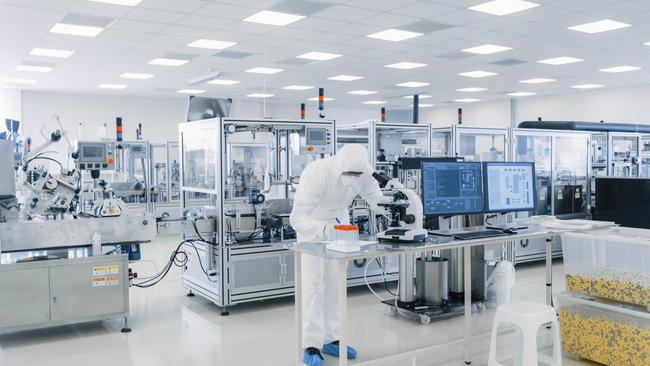Security collaborations benefit the nation
Tripartite partnerships between government, industry and universities will not only bolster national security but build the Australian economy of the future.

In the context of rising security challenges in the Indo-Pacific, Australia has embarked on a process of building its sovereign capabilities in national security. This involves ensuring that our society and industry can benefit from cutting-edge developments in key technologies.
Australia cannot achieve this without the commitment and contribution of its world-class university sector. Tripartite partnerships between government, industry and universities will not only bolster national security but build the Australian economy of the future. These partnerships support members of our Australian Defence Force, enhance stability in the region, help to address emerging security threats and respond to natural disasters.
The University of Melbourne’s national security research capabilities range from training in defence ethics to biothreat forecasting and surveillance.
We want to work with industry and government to see advanced research translated into increased capability for national security.
As an engineer working to lead the Melbourne Defence Enterprise that creates a pathway for industry to access the university’s research expertise and facilities, I know that, for university researchers, these collaborations are a key opportunity to apply research to problems in the context of national security. This type of research has a focus on solving practical problems and producing outcomes that often have broader societal applications beyond the domain of defence.

University of Melbourne research contributes to major national security projects
The University of Melbourne recently participated in a $20m Intelligence Advanced Research Projects Agency (IARPA) intelligence project to develop and road test research into crowdsourcing intelligence analysis to leverage people’s ability to produce and evaluate reasoning. IARPA funds research around the world for the development of breakthrough technologies for national security.
Australia is seeking to develop a pipeline of highly skilled science, technology, engineering and mathematics (STEM) graduates who will strengthen Australia’s sovereign capabilities, and support nuclear-powered submarine program initiatives, industry and the economy.
The University of Melbourne was recently granted more than 300 new Commonwealth supported places for domestic students by the Australian government to train more engineers and scientists to work on submarine technologies in areas including physics, chemistry and mathematics and statistics.
“The University of Melbourne’s Fishermans Bend campus represents a significant investment in new research infrastructure for the nation. This new campus will provide an opportunity for research partners such as the Defence Science and Technology Group, as well as the Australian Submarine Agency, to access the latest infrastructure and expertise,” Professor Sciacca says.
Benefits to other industry sectors
”Many of the technologies we develop through these partnerships have broader applications in sectors such as medicine, agriculture or sports.
The recently established Centre for Advanced Defence Research and Enterprise (CADRE-OCE) is leading several research programs with applications in dual-use settings.
The first, the Human Integrated Sensor System, treats the person as a sensor to detect chemical or biological anomalies. The research considers millions of years of evolution that has finetuned human immune systems to respond to subtle changes in their environment.
“The second program of work is about deploying hundreds of thousands of low-cost sensors on vehicles and infrastructure to pick up airborne chemical and biological agents,” says CADRE-OCE director Professor Jia-Yee Lee.
The Active Collaborative CBRN Environments Sense and Sense-making System (ACCESSS) will alert Defence and first responders when an environment has become contaminated and unsafe.
CADRE-OCE is a national program initiated jointly by the University of Melbourne with the University of Adelaide, the University of New South Wales and the Queensland University of Technology. It is funded under the Australian Government Department of Defence Operating in Chemical, Biological, Radiological and Nuclear (CBRN) Environments STAR Shot program.
-
Professor Len Sciacca is Enterprise Professor, Melbourne Defence Enterprise.


